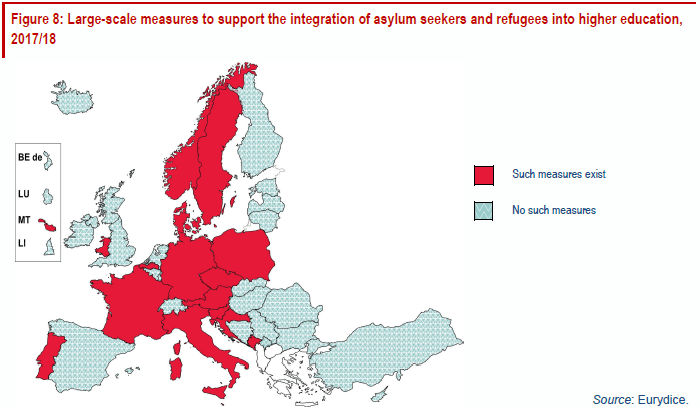Stay in the loop! Subscribe to our mailing list
The Education, Audiovisual and Culture Executive Agency (EACEA) has just published its latest Eurydice report titled Integrating Asylum Seekers and Refugees into Higher Education in Europe: National Policies and Measures. The report is divided into two main parts: the first part provides contextual data and indicators on migratory flows and asylum trends in Europe, while the second part presents an overview of existing policies and measures across Europe to support the integration of asylum seekers and refugees into higher education (HE).
Figures show that almost 50% of refugees are between 18 and 34 years old, which represents the typical higher education age range, and most of them followed higher education courses in their home countries. The report thus suggests that there is a strong request for higher education enrolment among refugees, to which policies and measures should adequately respond. Section 2 of the report tries to assess the existence and quality of such policies and measures and showcases examples of good practices implemented at national level.

The report shows that the types of supportive measures most frequently adopted are:
According to the report, the most engaged country is Germany, having introduced the most comprehensive set of measures, mainly through the German Academic Exchange Service (DAAD) which implemented various programmes to integrate refugees into higher education, such as information portals or the INTEGRA programme (see ACA Newsletter – Education Europe, April 2016 and February 2018).
The report also outlines how alternative measures that can facilitate refugees’ access to higher education are spread across Europe, such as:
Finally, the study concludes that only six higher education systems monitor the integration of asylum seekers and refugees in their institutions, thus confirming the need for further mainstreaming the practice into most HE systems.